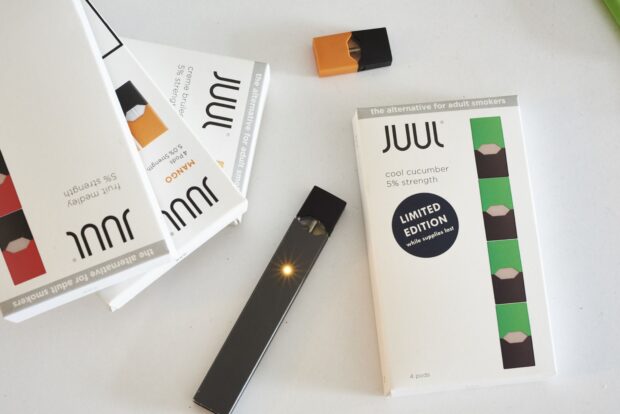Altria Group Inc. didn’t benefit from its $12.8 billion investment in Juul Labs Inc., the tobacco giant’s lawyers told a jury in a trial over whether it helped the e-cigarette maker promote sales that led to a youth vaping crisis in a test case brought by the San Francisco school system.
Altria played a passive role in Juul’s efforts to market e-cigarettes to young users and “hasn’t received a penny for this investment; they haven’t benefited,” Beth Wilkinson, an attorney for the company, argued as the trial kicked off Monday in San Francisco federal court. The 2018 investment vaporized to $250 million, she said, referring to the value of the Juul investment at the end of 2022 that Altria announced earlier this year.
Juul was partly owned by Richmond, Va.-based Altria until the Marlboro maker this year exchanged its minority stake in Juul for a nonexclusive global license for the startup’s intellectual property.
Attorneys representing the San Francisco Unified School District told U.S. District Judge William Orrick that Wilkinson’s statements on the Juul investment to the jury were “prejudicial” to plaintiffs and violated ground rules on excluding certain information at trial. The judge said he’ll take up the objection Tuesday morning before the trial resumes.
The bellwether trial forces Altria to publicly defend itself solo for the first time as it faces thousands more cases that were brought against the company and Juul. In December, Juul agreed to pay more than $1.2 billion to settle more than 5,000 suits blaming the company for a youth vaping epidemic across the U.S.
Altria’s “going to say, ‘We didn’t market the product,'” Thomas Cartmell, a lawyer representing the school district, told jurors. “That’s true, but it’s very important for you all to know what Altria knew as they pursued and partnered with Juul,” he said, adding that Altria knew Juul’s marketing tactics would appeal to and hook young people, including kids.
Juul sales “skyrocketed” after Altria’s 2018 investment and the tobacco company helped the startup market its products and set up 10,000 new stores, Cartmell said. Altria knew Juul’s plans to boost sales would frustrate the Food and Drug Administration’s efforts to curb youth e-cigarette use, he said.
The sprawling litigation in San Francisco federal court includes about 4,270 personal injury suits and more than 1,434 complaints brought by government entities and native Indian tribes, in addition to a proposed class-action fight, according to a recent court filing.
Juul and Altria defended the first trial that started in March over a case brought by Minnesota over deceptive marketing of e-cigarettes. The companies last month settled the state’s case, though details are yet to be disclosed.
In April, Juul agreed to pay $462 million to six states and the District of Columbia to resolve lawsuits and investigations into the marketing of addictive vaping products to children.
The case is In re: Juul Labs Inc. Marketing, Sales Practices & Products Liability Litigation, 19-md-02913, U.S. District Court, Northern District of California (San Francisco).





















 Flood Risk Misconceptions Drive Underinsurance: Chubb
Flood Risk Misconceptions Drive Underinsurance: Chubb  Experts Say It’s Difficult to Tie AI to Layoffs
Experts Say It’s Difficult to Tie AI to Layoffs  AIG, Chubb Can’t Use ‘Bump-Up’ Provision in D&O Policy to Avoid Coverage
AIG, Chubb Can’t Use ‘Bump-Up’ Provision in D&O Policy to Avoid Coverage  Modern Underwriting Technology: Decisive Steps to Successful Implementation
Modern Underwriting Technology: Decisive Steps to Successful Implementation 
